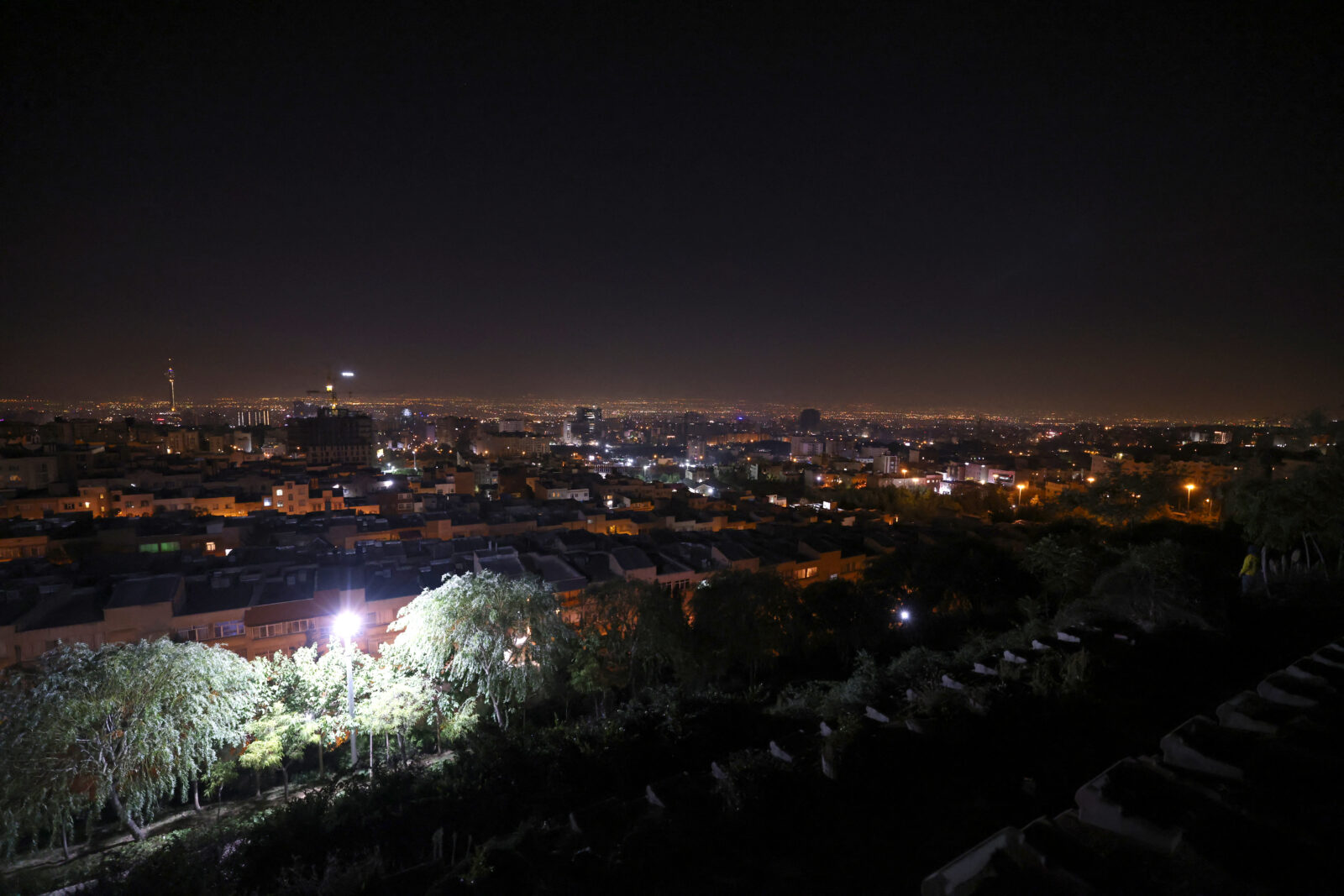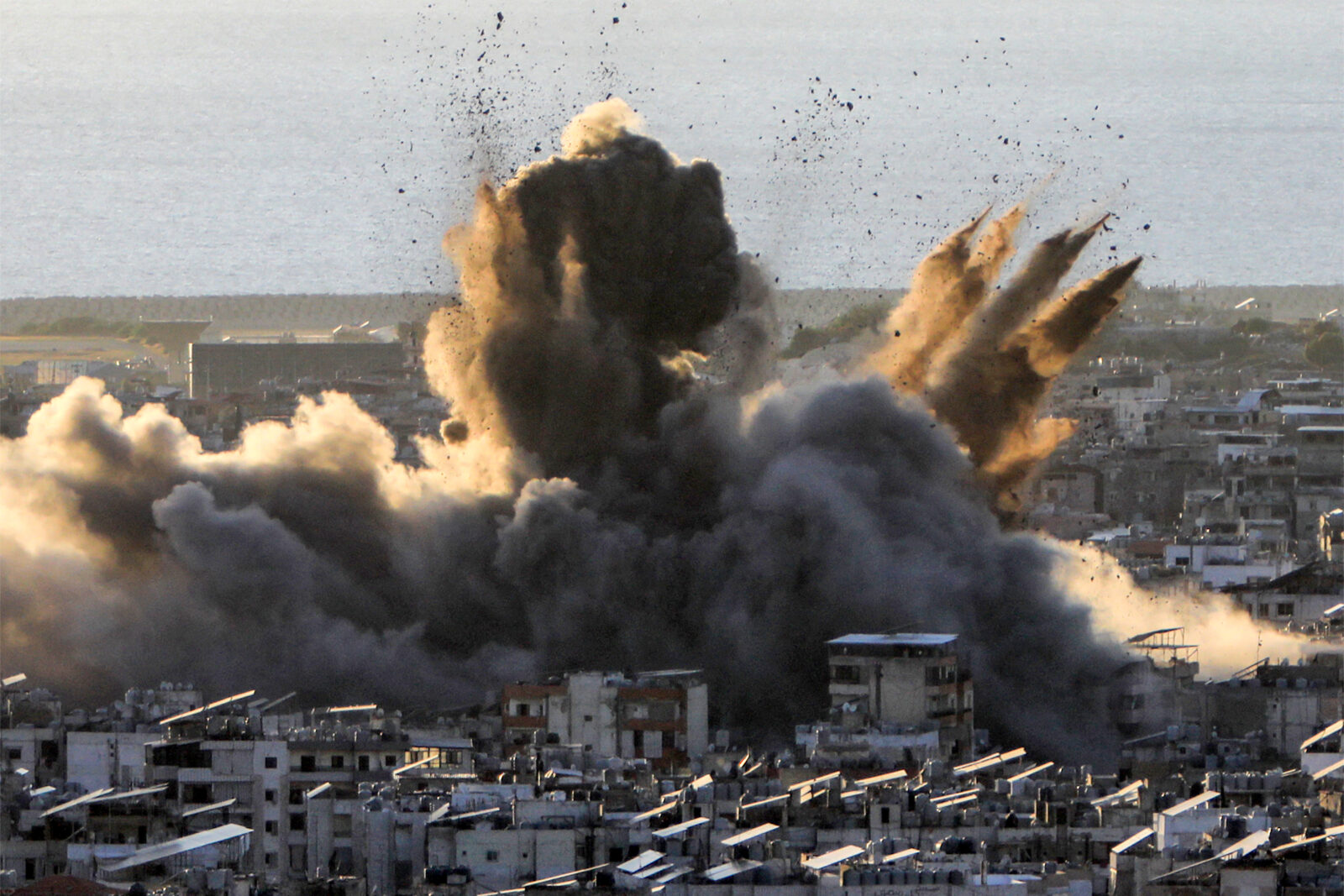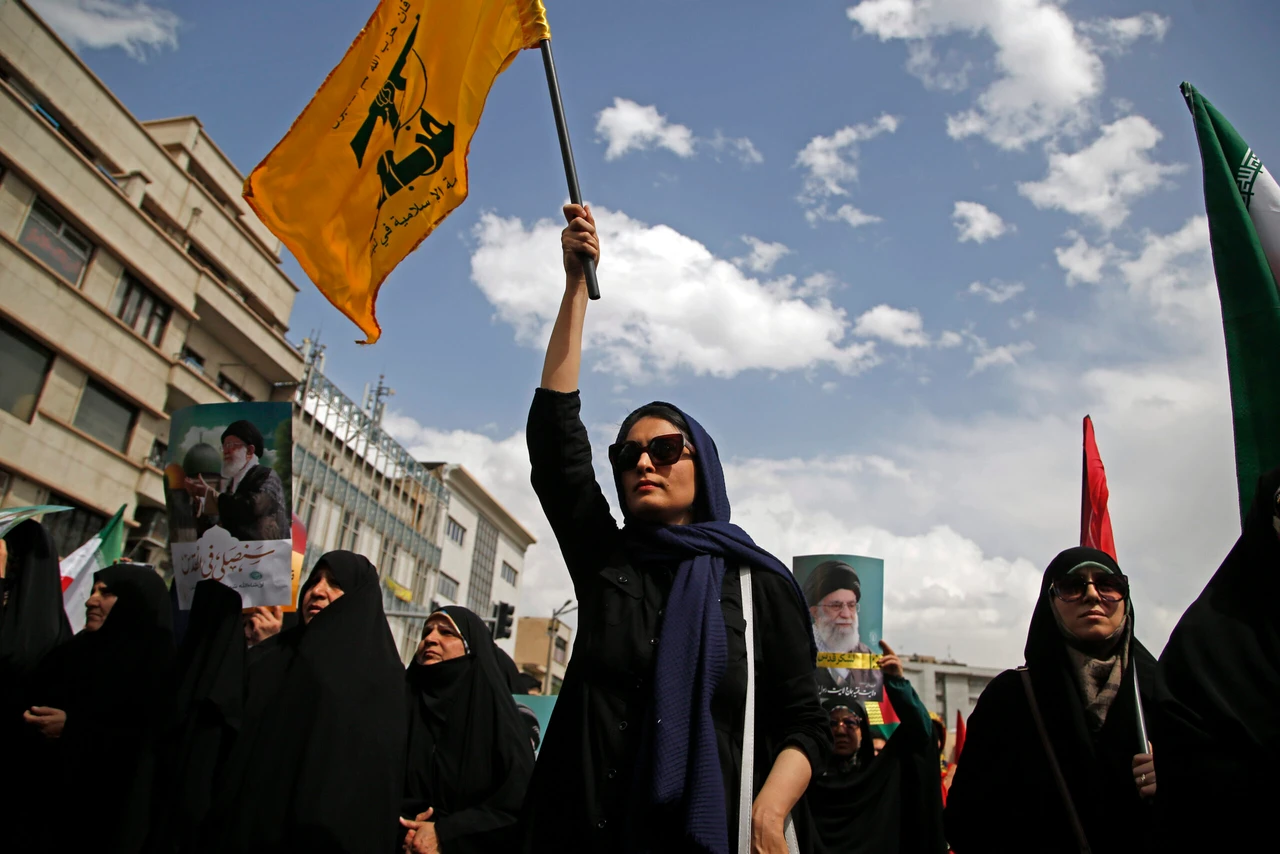Israeli cabinet moves to bunker as Iran threatens retaliation for strikes
 This screen grab taken from a handout video released by the Israeli government press office shows Prime Minister Benjamin Netanyahu attending a meeting in the command center of the defense ministry in Tel Aviv on October 26, 2024. (AFP Photo)
This screen grab taken from a handout video released by the Israeli government press office shows Prime Minister Benjamin Netanyahu attending a meeting in the command center of the defense ministry in Tel Aviv on October 26, 2024. (AFP Photo)
The Israeli government relocated its regular cabinet meeting to an undisclosed bunker after Iran warned it would respond to Israel’s strikes on its missile and air defense systems on Saturday, U.S.-based Bloomberg reported.
For security reasons, the cabinet will not meet in its usual location at Prime Minister Benjamin Netanyahu’s office in Jerusalem or at a secure part of the defense ministry in Tel Aviv. The exact location of the meeting remains confidential.
Iran’s threat of retaliation
Iran stated it would respond “in kind” to Israel’s actions but did not specify the nature of that response. Iranian Foreign Ministry spokesman Esmaeil Baghaei said, “The nature of our response will correspond to the type of attack carried out. Iran will not forgo its right to respond to Israel’s aggression.”
Israel’s strikes were retaliation for Iran’s firing of 200 ballistic missiles earlier this month, marking the second such assault by the Iran this year.
Both exchanges occurred amid ongoing fighting between Israel and Iran-backed resistance groups, primarily Hamas in Gaza and Hezbollah in Lebanon, raising fears of a broader regional conflict.
‘Power balance changed,’ claims Israeli defense chief
While early assessments suggested Tehran may downplay the significance of Saturday’s attack, Israeli officials remain wary of potential retaliation.
Iranian President Massoud Pezeshkian remarked that Iran would “respond to stupidity with wisdom and strategy” following the Israeli assault.
Meanwhile, Israeli Defense Minister Yoav Gallant asserted that the recent airstrikes on Iranian military sites have changed the balance of power between the two nations. “The enemy has been weakened—both in its ability to produce missiles and in its ability to defend itself. This changes the balance of power,” Gallant stated.
The measured nature of the attack helped calm markets, with oil prices falling around 6% and the Israeli shekel performing better than any other currency globally. However, an Israeli defense official told Bloomberg the government is increasingly concerned Iran might strike a third time, possibly using ballistic missiles.

Concerns over Iran’s nuclear ambitions
Israel’s Netanyahu claimed Iran is working to develop a nuclear bomb “stockpile” aimed at destroying Israel, two days after Israel bombed military targets in Iran. “Iran is striving to develop a stockpile of nuclear bombs to destroy us, equipped with long-range missiles and intercontinental missiles that Iran is trying to develop,” he said.
“Iran could threaten the entire world at any point,” Netanyahu added. He noted that “stopping the Iranian nuclear program is at the forefront of our minds,” though he did not share specific plans.
The Iranian government has long denied trying to build nuclear weapons, insisting its program is for peaceful purposes. However, it has decreased its cooperation with the International Atomic Energy Agency while ramping up its nuclear program.
The head of the U.N. nuclear watchdog recently noted that Iran is showing “willingness” to re-engage on the nuclear issue. Tehran, which supports Hamas, warned it would “respond firmly and effectively” to Israel’s strikes.

Escalating conflict in the region
The ongoing war in Gaza has drawn in Tehran-backed allies of Hamas, including Hezbollah in Lebanon. Netanyahu described this coalition as a “fanatical axis of evil” led by Iran, which seeks to destroy Israel and control the region.
“Because according to Iran, if Israel falls, many countries will fall along with it. The entire Middle East will fall into its hands,” he warned.
In response to the escalating conflict, the U.N. Security Council will meet later today at Iran’s request.
Tehran has urged the world to condemn Saturday’s strikes, which authorities said killed four soldiers and caused significant damage.



